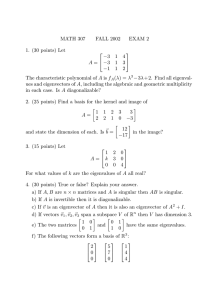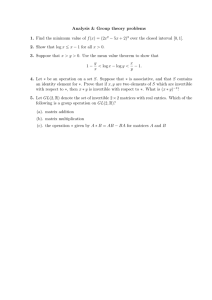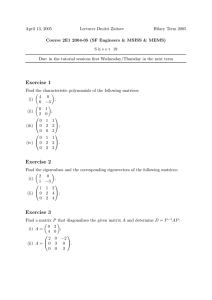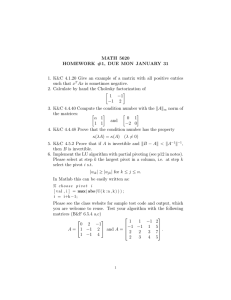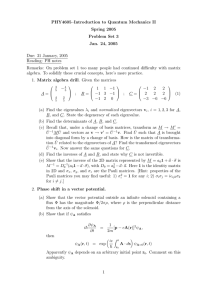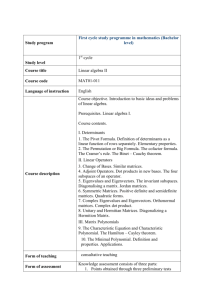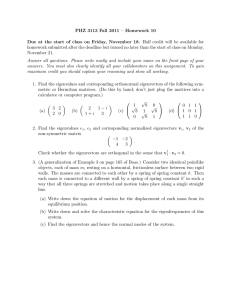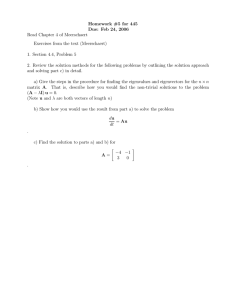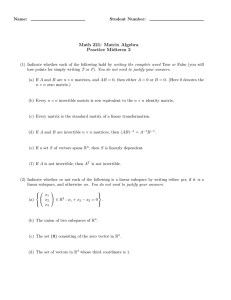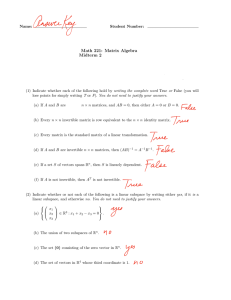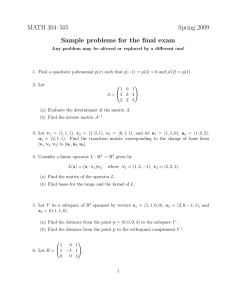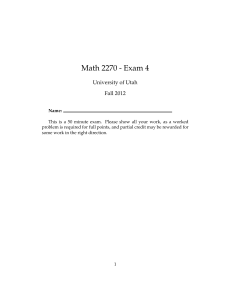Practice Problems for the M221 Final, Fall 2010
advertisement
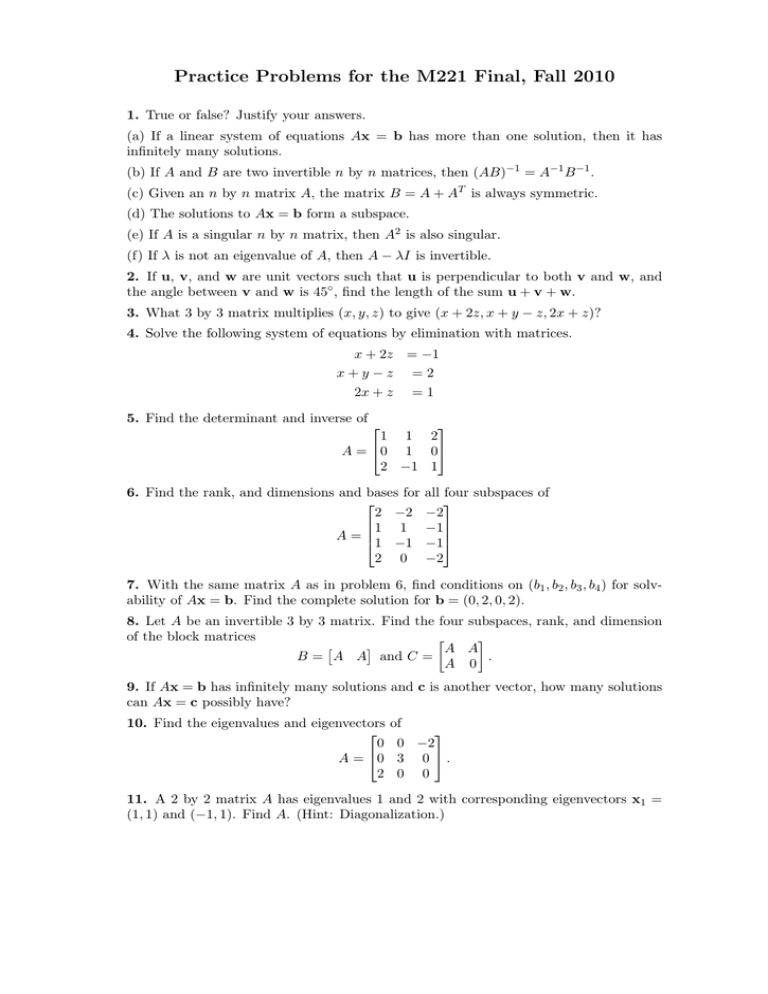
Practice Problems for the M221 Final, Fall 2010 1. True or false? Justify your answers. (a) If a linear system of equations Ax = b has more than one solution, then it has infinitely many solutions. (b) If A and B are two invertible n by n matrices, then (AB)−1 = A−1 B −1 . (c) Given an n by n matrix A, the matrix B = A + AT is always symmetric. (d) The solutions to Ax = b form a subspace. (e) If A is a singular n by n matrix, then A2 is also singular. (f) If λ is not an eigenvalue of A, then A − λI is invertible. 2. If u, v, and w are unit vectors such that u is perpendicular to both v and w, and the angle between v and w is 45◦ , find the length of the sum u + v + w. 3. What 3 by 3 matrix multiplies (x, y, z) to give (x + 2z, x + y − z, 2x + z)? 4. Solve the following system of equations by elimination with matrices. x + 2z = −1 x+y−z =2 2x + z = 1 5. Find the determinant and inverse of 1 1 2 A = 0 1 0 2 −1 1 6. Find the rank, and dimensions and bases for 2 −2 1 1 A= 1 −1 2 0 all four subspaces of −2 −1 −1 −2 7. With the same matrix A as in problem 6, find conditions on (b1 , b2 , b3 , b4 ) for solvability of Ax = b. Find the complete solution for b = (0, 2, 0, 2). 8. Let A be an invertible 3 by 3 matrix. Find the four subspaces, rank, and dimension of the block matrices A A B = A A and C = . A 0 9. If Ax = b has infinitely many solutions and c is another vector, how many solutions can Ax = c possibly have? 10. Find the eigenvalues and eigenvectors 0 A = 0 2 of 0 −2 3 0 . 0 0 11. A 2 by 2 matrix A has eigenvalues 1 and 2 with corresponding eigenvectors x1 = (1, 1) and (−1, 1). Find A. (Hint: Diagonalization.)
